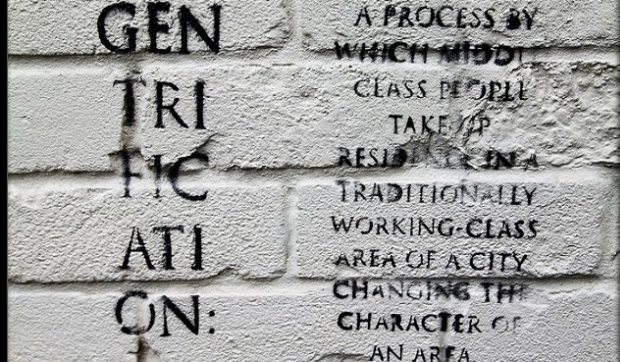By designing the webpage “Gentrification’s Impact on Urban Public Schools,” I gained a great deal of knowledge about the power of grassroots organizing, about Neoliberal educational reform’s negative impact on low-income families and minority families, and to be cautious about economic development in urban areas.
The power of grassroots organizing became more evident to me throughout the construction of this project. By looking at grassroots organization from all areas of the United States, I was able to better understand the ability of grassroots organizing to meet the unique goals of the community and prepare for future, large-scale societal change. I really enjoyed seeing how grassroots groups from Boston, Santa Fe, , Atlanta, and other major cities could unite a community and bring tangible change and widespread knowledge of reform across their neighborhood. Although many members of urban communities, especially low-income and minority households, experience systemic marginalization from many, many years of calculated government policy, through grassroots organizing individuals are able to use their collective voice to slowly overcome some of the discriminative political, economic, and social forces plaguing their communities, including gentrification and its subsequent displacement. Although I was unable to find grassroots organizations that seek to curb gentrification’s effects specifically on public schools, I anticipate that if gentrification continues at the rate it has been in recent years within major cities, its role as a catalyst for neoliberal educational reforms will result in some grassroots activism arising in cities. I look forward to witnessing this push back and participating within it when I enter the teaching field.
By examining gentrification’s effects on neoliberal education policies, I found myself frustrated by the use of economic concepts, like cost-minimization, efficiency, competition, and accountability, invading the urban public school system and further disadvantaging low-income and minority students in the education system. The incorporation of capitalistic principles to the public school system directly conflicts with the public school system’s purpose of bringing free education to children across the United States. Rather than operating under market-based reform measures, I imagine a change in resource allocation could equalize public schools in urban districts. Resource allocation could be scaled to give funds to school that are falling behind others in cities rather than giving equal resources to all public schools; once public schools equally accessed and equipped, funds can, once again, be redistributed equally. However, only allocating funds equally to schools of different resources will never close the initial gap between schools. In order to fight privilege inherent to some parents within communities, school officials can spread knowledge and understanding of the urban public school district to they are doing everything in their power to give each child and family the optimal experience in the public school system. Therefore, I believe that rather than incorporate neoliberal policies applying cost-minimization and competition in public school districts, urban public schools can adopt resource allocation methods that will equalize resources available in every public school across the district and give all families the knowledge needed to make the best decision for their child’s education.
As an Economic and Education Coordinate major, I’ve heard arguments about the power of urban redevelopment in large cities across the country. The construction of upscale retail, luxury apartment complexes, and the inclusion of high-end activities within urban centers does generate revenues and tourism in cities across the country. However, a very important aspect of revitalization tends to be overlooked by politicians, contractors, and urban developers: the displacement of many low-income, minority families from their homes due to a rise in land value and housing costs. Because of my own privilege, until this project, I really only saw the holistic, potential benefits associated with urban revitalization for cities. These “benefits” also result in insurmountable emotional frustration and heartbreak from community members who lose complete control over their neighborhood and its culture. Moreover, marginalized communities are unable to enact change in a similar manner to middle-class, white Americans due to their lack of political capital in the political spotlight, due to low resources and time availability, and due to many of the systemic discriminations built within many systems embedded in society. This then reiterates the sheer strength of building connections over shared adversities and the power of community organizing in sparking change within urban communities.
Although this project highlighted incredible struggles found across the country because of gentrification and its displacement of low-income, minority individuals and families, the web design shined light on the strength of grassroots organizing. By understanding their power as a united front, marginalized communities can fight for the change they wish to have in their neighborhoods and, eventually, across the country. Thanks for assigning this project, Professor Santoro!
